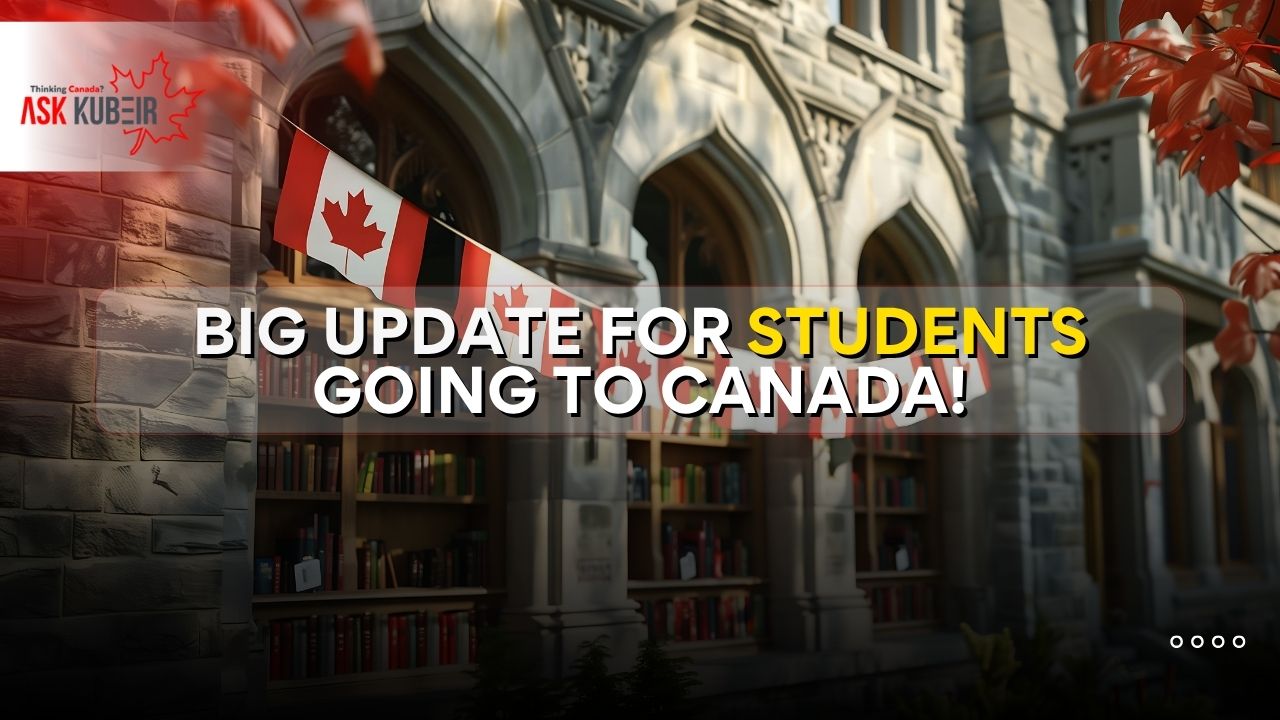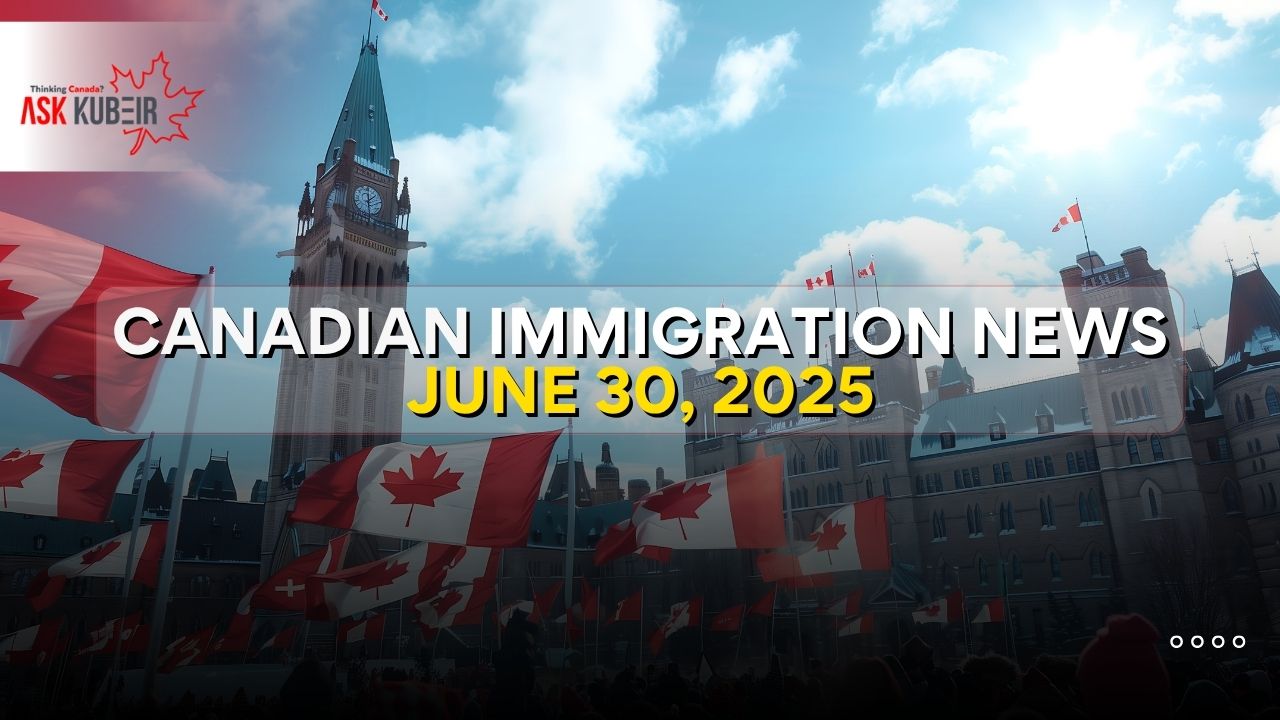
Related Post







Study in Canada as an International Student
Studying in Canada – by Adnan Kamal Canada is now home to nearly 600,000 international students. This is triple the amount since 10 years ago. Canada has risen to the forefront of providing education to the students of the world. Canada now ranks as the fourth host-leading country for international students according to the ICEF. Canada maintains its position as a global hotspot for education due to the quality of knowledge imparted and shared by these universities and colleges in Canada. Canada is also well-known as a welcoming and open society, especially towards newcomers. Lastly, Canada provides a comprehensive study-work-immigrate package to international students, which provides them with an opportunity to gain Canadian Citizenship. If Canada appeals to you, or Canada is your destination for undergraduate or future studies, then there are a few important things we can go over before you finalise Canada as your destination for study abroad. Quality of Life and Experiences: Top 5 cities out of a 100 that are ideal for student life and support a student centered culture are all in Canada. Canada is also among the top nations when it comes to quality of life and safety. The country is surrounded by oceans on three sides, has a surplus of scenic mountains, lakes and reserve parks. Some notable ones can be seen below:
- Banff
- Niagara Falls (Way more beautiful when seen from Canada)
- Gros Morne National Park
- Jasper National Park
- Mont-Tremblant
Canada has two official languages; English & French. This bilingual nature of the country opens you up to new cultures, languages, opportunities. Learning French as a second language will not only add skills to your persona but also open up doors in your career.

Safety: As an International student it is understandable to hold a certain fear as to the unknown and unexpected as you are going to be in a new country away from home and family. Many parents would share the same fear, however Canada is one of the most peaceful nations and as of 2016 was ranking 8th out of all other countries. Canada also has no tolerance for discrimination irrespective of the individuals circumstance and has laws in place to protect and serve every individual in their country. Quality Education: Canadian Universities and College diplomas are globally recognised and one of the major reasons that many international students are flocking to Canada is because of the Quality of Education it offers. Canada has 11 universities that are ranked in the top 250 universities in the world; hence making it an appealing option for studies abroad. The most elementary question you will have to answer after finalising Canada is; What is that you wish to study? Is this for a Bachelors program, a certificate program, or a post-graduate program. You will need to start with your level of education. This will make it easier for you to plan your next degree. What is it that you wish to study? This is the same as asking; What do you wish to be in the future? Are there any interests you would like to pursue? With this food for thought, the next step after ascertaining the answers to the previous questions would be to shortlist universities and colleges that are suitable to your choice of program or interest of study, keeping in mind the financial quotient of studying abroad. The internet will be your wise old friend for the research you will need to do on these universities. You can find everything on the internet, accredited stories by actual students of the university. You can learn about the student life, potential job prospects for the future, admission costs and requirements, deadlines to apply etc. Look for everything possible while you’re narrowing your list of colleges and universities.

Eligibility: After researching the admission requirements, you need to check if you’re actually eligible. Every university’s admission requirements are different. However, if you’re applying for an undergraduate program the main emphasis would be on your high-school results, extra-curricular, social projects, voluntary work etc. If you were to be applying for a Graduate school (Masters/Ph.D) then you need a grocery list as there are 6 factors to consider:
- The higher the Grade/Result, the better your chances. Graduate programs in Canada happen to be competitive.
* However, your last 2 years of undergraduate studies play a vital role. The cumulative average of those 2 years is more focused on when applications are being reviewed. Years of professional experience or in research also help in pushing your case forward. * There are graduate certificate programs you could consider if you have an Undergraduate degree. These programs hold their own benefits as they are 1-2 year graduate programs that enable you to get Post-Graduate Work Permit (PGWP). With the PGWP you can work and in Canada Full-Time after completing your program.
- Flaunt your professional endeavours, accomplishments, academic background and extra-curriculars utilising your CV.
* Every university has posted CV samples online, so make sure your version of CV fits with the university you’re applying to.
- Write a strong Letter of Intent, expressing your desire, motivation and why you’re a strong candidate for the program. For this as well, you can look up samples on the internet before drafting your own, this will give you a fair idea of what to write on your own.
- You will need strong Letter of Recommendations, these will have to be by individuals who can accredit your graduate level study and deem you fit for the program you’re pursuing. The number of letters required vary from universities, but it is recommended to keep 3 in hand.
- If your previous language and medium of examinations and instructions for your degree was English, then you will not need to provide English Proficiency. You can request for a waiver.
After all this research, I’m aware that the majority of the students are worried about How are they going to finance the program?

Affordability: Canada has a lower cost of studying in comparison to other English speaking countries and with the Quality of Education being offered it comes as a neatly packaged offer for studies abroad. You will need to pay for tuition & living expenses. It can be a lump sum amount and can be a deterrent for many students. However, there are other possible sources students can apply to; Personal Funds, University Scholarships, Research Grants, and lastly, Scholarships from Government or an organisation. * Also you might want to check with the university you’re applying to about Internal Scholarships. The students for these scholarships are considered by the university when an admission application is submitted. Now that you have everything ready, the only thing left to do is APPLY. It is always better to apply as soon as possible. This allows you ample time for financial preparations, visa applications and other time consuming procedural paperwork. The entire process is online; application and application fee, digitally scanned copies of transcripts and other documents are also accepted in most Canadian Universities. You will be required to submit your original documents after the College/university has extended an Offer. Work & Study: Even though Canada has a lower cost of studying in comparison to other popular countries for studies abroad, it can still be quite expensive. However, international students can work upto 20 hours a week while their academic sessions are going on and work full-time during their summer and winter breaks. A work permit is not required by most students as a study permit that is issued to you will have it mentioned if you are allowed to work on or off campus. Canada offers an excellent standard of living and experiences. There are tremendous opportunities to get experience in your field of studies and it is also possible to convert that into a permanent residency in Canada (Canadian Education and Canadian Work Experience can really help you become a permanent resident). Ask Kubeir offers study in Canada services. We facilitate admissions into colleges and universities for no fee to the student. Do complete the form and let our advisors suggest suitable programs/colleges to you. The link is here www.askkubeir.com/study
